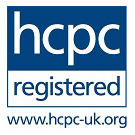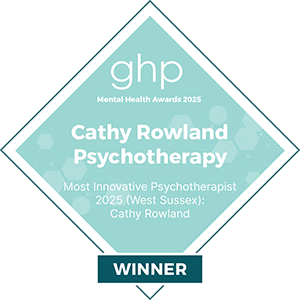
Counselling/Psychotherapy and EMDR in Hove, Steyning and Online
Counselling and Psychotherapy
'Stuck' and 'overwhelm' may show up for you in many different ways, no matter your age, background, position or stage in life. You may or may not have had therapy before or encountered current terminology around mental health/wellbeing. You may however identify with one or more of the following:
- Low moods, sadness, hopelessnees, despair.
- A need to escape from life, whether this is into your head, into doing too little/too much, doing the wrong/harmful things.
- A feeling of being haunted, driven by the past
- A crippling anxiety or inability to regulate, 'be with', 'befriend your feelings.
- Having upsetting, scary intrusive thoughts which won't go away
- Having experienced one or more upsetting events, whether during childhood or more recently
- Having experienced abuse (physical, sexual, emotional, relational, financial, domenstic etc) in the past, or experiencing this in the present day.
- Struggling with your identity, (cultural, social, sexual) or roles in life
- Lacking a sense or purpose, direction or meaning in life.
- Struggling with recent or past losses.
- You feel in a treadmill, going over the same stuff, same patterns, running the same old story over and over again.
How I Work
I believe we all share a common humanity, and at times find life difficult or upsetting. Often this is about a loss of connection; perhaps initially from our carers, and then later life towards ourselves and others. As research has repeatedly shown, good counselling/psychotherapy rests upon restoring that real sense of connection.
I am respectful, open, warm, empathic and my style is flexible and collaborative. When we first meet, I will work with you to gain a deep understanding about what you bring, identifying goals, and discussing with you the right approach going forwards. It is important that you feel heard, understood; ultimately I believe you are the expert in your own life, capable of accessing what you need and finding your own way forwards. This means I work in partnership with you, drawing flexibly upon my five-year integrative training to help you gain what you need from our time together.


‘Stuck’ and ‘overwhelm’ are often signs of unresolved things from the past. In helping you navigate your way through this I draw upon a range of therapies/approaches, from my 5-year integrative training, and beyond. The exact way we work of course will be unique to you.
'Relational Psychoanalysis'
A bit jargony, it nevertheless shows us how the relationship we develop together can be a mirror, revealing stuck patterns in the way you show up for others or yourself, perpetuating stress, overwhelm. The good news is that these often point to unmet needs, which can be addressed within the relationship. Thus, you may for example feel surprised, being heard in a different way, or discover new ways to express yourself and understand your life. As research has repeatedly shown, a strong therapeutic relationship can be powerful medicine for many of life's frustrations.
‘3rd-Wave Compassion-based CBT (Cognitive Behavioural Therapy).’
I see this as an upgrade from traditional Cognitive Behavioural Therapy. This approach helps you identify any unhelpful thoughts, negative feelings and dysfunctional behaviours in your life. It also helps you hold them within a kinder, lighter mindset, promoting greater acceptance and calm.
‘Contemporary 'Parts-Work' and IFS (Internal Family Systems)'.
While CBT with its focus on your thoughts can be helpful, it can feel more meaningful to think of yourself as having different ‘parts.' Sometimes, it is useful to look at these through a TA (Transactional Analysis) lens - so that you can enable the 'child,' 'parent' and 'adult' parts to function more healthily. If you have experienced any trauma, I may also use IFS (Internal Family Systems). As Dick Schwarz, its creator says, (in relation to any 'parts' therapy), there are ‘no bad parts;’ it’s just that unresolved past issues may have left them overwhelmed or ‘burdened.’ I work to enable you to gain a compassionate understanding of these parts, their feelings, intentions, fears etc. This significantly reduces the stress they hold, freeing you up for a calmer, happier life.
‘Trauma-Informed Psychotherapy’.
If trauma is part of your story, it is important that any psychotherapy you receive is trauma-informed and works directly with the body. Here it can be reassuring, empowering for you to learn a bit of ‘psychoeducation,’ about your brain, nervous system, and how they can be impacted by trauma. I also work towards your feeling as stable as possibly in life before proceeding with more in-depth work.
As I have stated, IFS (Internal Family Systems) addresses the effects of traumatic experiences upon our personalities and lives. This is powerfully complemented however by somatic practices, ways to pay attention to the patterns of sensations in our bodies, which may communicate profound teachings. Some methods I use are: ‘Focussing’ (Gendlin), ‘Somatic Psychotherapy’ (Ogden), ‘Mindfulness Practices,’ (Kabat-Zinn), ‘Emotional Freedom Technique’, EFT (Craig), all of which may help you to connect with your body’s unique emotional language, creating a calmer, more grounded and stronger sense of yourself.
Most frequently however, I offer EMDR, (Eye Movement Desensitisation and Reprocessing) a NICE (Natural Institute for Clinical Excellence) approved and evidence-based psychotherapy. This works holistically (on the body, mind and emotions) to address the effects of trauma from your system. For further details, do read go to my other page.
‘Existential or Big Picture’ Approaches.
Depending upon what you bring and your stage in life, you may feel impelled to look at the 'big picture' - for example to examine what it means to consider your life purpose, deeper meaning, how to be with loss and accept mortality. Although these reflections may concern us at any time in our lives, as the great twentieth Century visionary Carl Jung believed, it is often a major preoccupation of the 2nd half. These big, impenetrable questions are the territory of 'Existential Psychotherapy' and I enjoy drawing upon its teachings when holding space for you.
‘Music Imagery Psychotherapy.’
As Carl Jung taught, the answers to our big life questions originate from our unconcious, accessed by our dreams, imagination or creativity. As a former Music Therapist of 25 years, I heartedly recomend Music Imagery Psychotherapy - a highly accessible route into this mysterious aspect of our being. As you see from this site, I offer it as a stand alone therapy, but also integrated into Counselling/Psychotherapy or EMDR. Requiring no musical or artistic ability, Music Imagery Psychotherapy is a safe, powerful way to bi-pass the anxious, suffering of the busy mind, drawing upon the right-brain's love of sound, colour, sensation and imagery - and in so doing harnessing insights from the unconcious. If you would like to know more, do visit other pages of this site.
Like many practitioners, I am constantly learning and refining the ways I work so the above is not an exhaustive summary. If you have any questions or think you might like to book an initial session do get in touch here.



